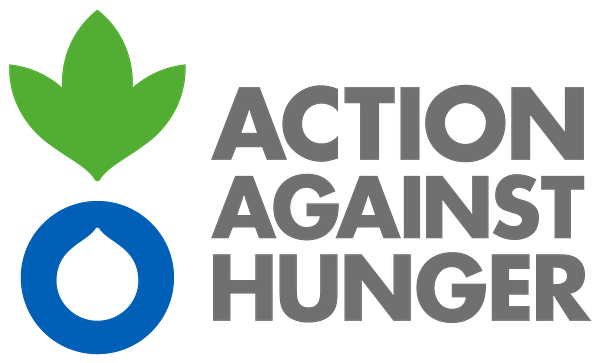Press release -
ESCALATION OF VIOLENCE IN THE LAKE CHAD REGION
In northeastern Nigeria, the surge of attacks by non-state armed groups since mid-December have led to huge displacements of civilian populations within the country, and in Chad and Cameroon.
The Baga military base attack in December, followed by raids on Monguno, led to the evacuation of humanitarians for few days, threatening aid assistance to the most vulnerable people and displacing yet more individuals.
"This year, 3.6 million people are food insecure in the Lake Chad Basin. Civilians are paying the price for the upsurge in violence in the region, and their protection must stand as the key priority for all parties in the conflict,” says Shashwat Saraf, country director for Action Against Hunger in Nigeria
"Urgent humanitarian assistance should be provided to the newly displaced while humanitarian assistance and recovery assistance should continue to be provided to internally displaced people and to the host communities affected by the crisis."
Action Against Hunger is working in Nigeria, Cameroon and Chad to meet the urgent needs of newly displaced civilians, who join the huge numbers of people already affected by the conflict and depend upon humanitarian aid for survival.
NIGERIA
Since the attacks in Kukawa and Baga, the agency has responded to the needs of the new internally displaced people (IDPs) in Monguno and Maiduguri.
In Maiduguri area, we have ensured that our ongoing programmes cover the health and nutrition needs of the new IDPs in the camps. In addition, we have also focused on expanding our water, sanitation and hygiene interventions to meet the needs of new arrivals.
"Some humanitarian actors completely withdrew from Monguno at the time of the attacks for security reasons, but we kept some essential staff on the ground and then had a full team in a matter of a couple of days to support the new IDPs." explains Saraf.
Action Against Hunger is also responding with the following interventions:
- Water trucking because of lack of potable water. Total water trucked to the camps was 569,600 litres in January 2019.
- Close to 2,000 new registered families - more than 10,000 people - received food assistance.
- 1790 families received hygiene kits.
- 600 families with children under five years old, and pregnant and lactating women, benefited from a blanket supplementary feeding programme.
- Latrine construction to prevent disease outbreak and meet the sanitation needs.
- Malnutrition screening for 90,480 children under five years old for malnutrition.
- Expansion of outreach of primary health care through mobile health teams.
CHAD
As of 25 January, 7505 people who had crossed the lake to Chad had been relocated to the Dar Es Salaam camp, which already hosts 11,300 Nigerian refugees since 2014.
To prevent diseases, especially diarrhea that leads to malnutrition, the agency distributed hygiene and sanitation kits, alongside hygiene awareness and open defecation prevention sessions.
- 2068 families received nonfood items kits including soap, water purification tablets, water buckets and torches.
- 440 dignity kits have been given to women of childbearing age (12-59 years) including two pieces of cotton of multi-purpose fabrics and sanitary pads.
- 377 child potties have been distributed to households with children under five years of age.
- Five new hand pumps to answer the needs of the new arrivals.
CAMEROON
This week 30,000 Nigerians, mainly women, children and elderly arrived in Cameroon. They settled 700m away from Goura in makeshift shelters.
Since January 28, Action Against Hunger have deployed two mobile health clinics to screen and treat children for malnutrition and provide primary health care to children and to pregnant and lactating women.
Health teams include nurses, midwifes, health promoters and community volunteers to perform malaria tests, blood glucose tests, hemoglobin tests and urine tests. Basic drugs are administered to treat children under five years old for malnutrition, malaria, diarrhoea and ARI (Acute Respiratory Infection), and to perform antenatal care and skilled deliveries for pregnant women, as well as postnatal care for new borns and lactating women.
In total, 976 children under five have been screened for malnutrition, from which 42 severely acutely malnourished children were identified and have been admitted for treatment.
Key health and nutrition message promotion is also ongoing.
Topics
- War
- Action Against Hunger is working in coordination with other actors to ensure coverage of health problems of IDPs and refugees. The response is supported by USAID, SIDA, ECHO, GAC, EU, OFDA, WFP in Nigeria, UNICEF in Chad and GAC in Cameroon.
- Action Against Hunger is a global humanitarian organisation that takes decisive action against the causes and effects of hunger. We save the lives of malnourished children and work with their communities before and after disaster strikes. We ensure that everyone can access clean water, food, training and healthcare. We enable people to provide for themselves and we constantly search for more effective solutions, while sharing our knowledge and expertise with the world. We push for long-term change. We will never give up. Until the world is free from hunger.
- In 2017, Action Against Hunger helped more than 20.2 million people in nearly 50 countries around the world.
- www.actionagainsthunger.org.uk
